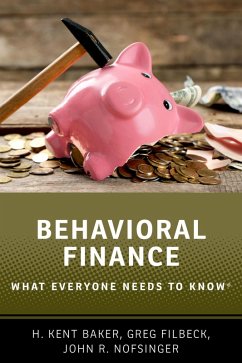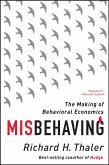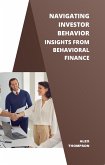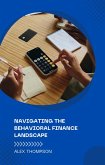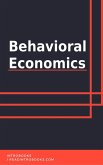People tend to be penny wise and pound foolish and cry over spilt milk, even though we are taught to do neither. Focusing on the present at the expense of the future and basing decisions on lost value are two mistakes common to decision-making that are particularly costly in the world of finance. Behavioral Finance: What Everyone Needs to KnowR provides an overview of common shortcuts and mistakes people make in managing their finances. It covers the common cognitive biases or errors that occur when people are collecting, processing, and interpreting information. These include emotional biases and the influence of social factors, from culture to the behavior of one's peers. These effects vary during one's life, reflecting differences in due to age, experience, and gender. Among the questions to be addressed are: How did the financial crisis of 2007-2008 spur understanding human behavior? What are market anomalies and how do they relate to behavioral biases? What role does overconfidence play in financial decision- making? And how does getting older affect risk tolerance?
Dieser Download kann aus rechtlichen Gründen nur mit Rechnungsadresse in A, B, BG, CY, CZ, D, DK, EW, E, FIN, F, GR, HR, H, IRL, I, LT, L, LR, M, NL, PL, P, R, S, SLO, SK ausgeliefert werden.

